10 essential books for writers
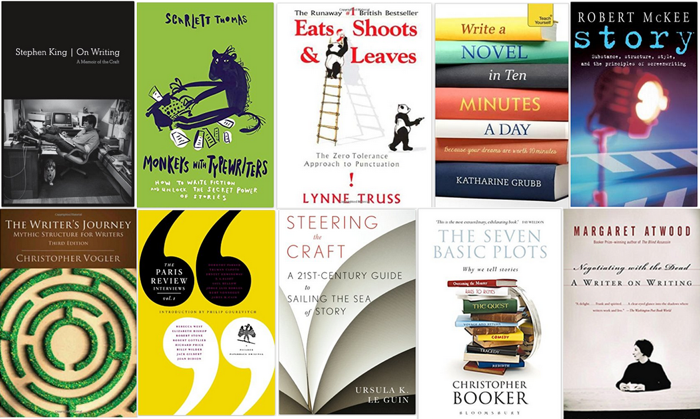 Develop your craft with these 10 essential books for writers.
Develop your craft with these 10 essential books for writers.
[rt_reading_time label="Reading Time:" postfix="minutes" postfix_singular="minute"]
“If you don’t have time to read, you don’t have the time (or the tools) to write. Simple as that.” – Stephen King
Stephen King may have been talking about reading fiction when he said that. But sometimes it pays to read books about writing too, starting with the one this quotation comes from: his own bestselling On Writing.
Books about writing are a great source of inspirational soundbites and quotations to be shared on Instagram (see the @publishingtalk Instagram account for some examples). But they are also a source of practical advice to be absorbed and used to develop your own craft. Furthermore, many lift the lid on the process and offer an insight into your favourite writers’ working methods.
I’ve had a rummage through my bookshelves, and here are some of my favourites. I’m sure you have your own – so do add your recommendations in the comments below.

 1. On Writing: A Memoir of the Craft
1. On Writing: A Memoir of the Craft
By Stephen King
What you will learn: To write truthfully.
On Writing is probably the most-quoted book on writing. Stephen King’s critically lauded, million-copy bestseller shares the experiences, habits, and convictions that have shaped him and his work. Immensely helpful and illuminating to any aspiring writer.
“Writing isn’t about making money, getting famous, getting dates, getting laid, or making friends. In the end, it’s about enriching the lives of those who will read your work, and enriching your own life, as well. It’s about getting up, getting well, and getting over. Getting happy, okay? Getting happy.”
– Stephen King, On Writing

 2. Negotiating with the Dead: A Writer on Writing
2. Negotiating with the Dead: A Writer on Writing
By Margaret Atwood
What you will learn: What it means to be a writer.
Margaret Atwood is one of my favourite authors, and she too has her own book ‘on writing.’ But Negotiating with the Dead isn’t so much a book about how to write, as about what it means to be a writer.
“What is this writing, anyway, as a human activity or a vocation, or as a profession, or as a hack job, or perhaps even as an art, and why do so many people feel compelled to do it?”
– Margaret Atwood, Negotiating with the Dead

 3. Steering the Craft: A Twenty-First-Century Guide to Sailing the Sea of Story
3. Steering the Craft: A Twenty-First-Century Guide to Sailing the Sea of Story
By Ursula K. Le Guin
What you will learn: To critique your own work.
I’m a fan of science fiction in general, and of the work of the late, great Ursula K. Le Guin in particular. It’s unsurprising that so many books for writers are written by writers – and this is hers.
A deceptively short and simple guide to the craft of writing, Steering the Craft started as a course she gave to aspiring writers. Over 10 chapters she addresses the fundamentals of narrative, from the sound of language to sentence construction to point of view. Each chapter combines examples from the global canon with Le Guin’s own witty commentary and an exercise you can do solo or in a group. She also offers a guide to working in writing groups, both face-to-face and online.
“Ultimately you write alone. And ultimately you and you alone can judge your work. The judgment that a work is complete — this is what I meant to do, and I stand by it — can come only from the writer, and it can be made rightly only by a writer who’s learned to read her own work.”
– Ursula K. Le Guin, Steering the Craft
 4. Monkeys with Typewriters: How to Write Fiction and Unlock the Secret Power of Stories
4. Monkeys with Typewriters: How to Write Fiction and Unlock the Secret Power of Stories
By Scarlett Thomas
What you will learn: How stories work.
I initially picked this up because I’d previously read Scarlett Thomas’s fiction. But she’s also a creative writing lecturer, and this thick volume is based on her years of teaching at the University of Kent in the UK. Monkeys with Typewriters has become a firm favourite.
It’s divided into two sections: Theory and Practice. The Theory section explores plots from Plato to The Matrix, from Tolstoy to Toy Story, and will help you create your own. The Practice section has creative exercises, structures, and charts. Including a chapter on ‘How to have ideas’, it breaks down the fiction writing process and shows that everyone has material to write about.
“Have you ever had your heart broken, or broken someone else’s heart? Have you ever won an argument but later realised you were wrong? Have you ever tripped over in public , or spilled wine on someone else’s carpet? … Have you ever edited your life in your head and wondered what would have happened if you’d said or done something else, or if someone else had? …If the answer to these questions is yes, then you almost certainly have what it takes to be a writer, or understand how and why other people write.”
– Scarlett Thomas, Chapter 1, Monkeys with Typewriters

 5. Story: Substance, Structure, Style and the Principles of Screenwriting
5. Story: Substance, Structure, Style and the Principles of Screenwriting
By Robert McKee
What you will learn: Narrative structure.
One of the things I do these days is write screenplays, and I’ve read many books on screenwriting over the years. But I’m an unashamed devotee of McKee. I’ve been on his courses and read his bestselling book Story. For many, this is the screenwriters’ Bible.
Yet it’s not just for screenwriters. If you write novels, you too need to understand the principles outlined in this book. I know novelists who go on McKee’s Story course too. Some publishers routinely send their fiction editors on it.
If you hope to have your novel adapted into a film or TV series, it pays to think about a narrative structure that works on screen from the start. But even if you don’t, the principles outlined in this book will improve your plotting – and your writing.
“Anxious, inexperienced writers obey rules; rebellious, unschooled writers break rules; an artist masters the form. Story is about eternal, universal forms, not formulas.”
– Robert McKee, Introduction to Story

 6. The Writer’s Journey: Mythic Structure for Storytellers and Screenwriters
6. The Writer’s Journey: Mythic Structure for Storytellers and Screenwriters
By Christopher Vogler
What you will learn: How to send your archetypes on a journey.
Another book that’s a classic on structure for writers is Vogler’s The Writer’s Journey. Drawing on the depth psychology of Carl Jung and the mythic studies of Joseph Campbell, it relates these ideas to contemporary storytelling. It’s a step-by-step guide through the classic hero’s journey with examples from Star Wars to Pulp Fiction, and includes exercises that will improve your writing.
The book details seven key archetypes, including the Hero, the Mentor and the Herald; and 12 stages of the ‘journey’, including Ordinary World, Call to Adventure, Meeting with the Mentor, Ordeal and The Road Back. Vogler then puts the theory to the test in analyses of heroic journeys in five blockbuster films. See if you can apply it to your own story!
“The concept of archetypes is an indispensible tool for inderstanding the purpose of function of characters in a story. If you grasp the function of the archetype which a particular character is expressing, it can help you determine if the character is pulling her full weight in the story.”
– Christopher Vogler, Chapter 2, The Writer’s Journey

 7. The Seven Basic Plots: Why We Tell Stories
7. The Seven Basic Plots: Why We Tell Stories
By Christopher Booker
What you will learn: There are no new stories.
At number 7 is The Seven Basic Plots – Christopher Booker’s classic text. Using a wealth of examples, from ancient myths and folk tales via the plays and novels of great literature to popular movies and TV soap operas, it shows that there are seven archetypal themes which recur throughout every kind of storytelling.
I don’t think it’s too much of a spoiler to tell you what they are (they’re on the front cover of the book, after all). They are: Overcoming the Monster; Rags to Riches; The Quest; Voyage and Return; Comedy; Tragedy; and Rebirth. See Christopher Vogler’s The Writer’s Journey above for more on Voyage and Return!
Scarlett Thomas, incidentally, has a chapter on ‘The Eight Basic Plots’. I guess that’s inflation for you. Hers are: Tragedy; Comedy; The quest; Rags to riches; Coming of age; Stranger comes to town; Mystery; and Modern realism.
“We shall be looking at every type of story imaginable: from the myths of ancient Mesopotamia and Greece to James Bond and Star Wars; from central European folk tales to E.T. and Close Encounters of the Third Kind; from P.G. Wodehouse to Proust; from the Marx Brothers to the Marquis de Sade and The Texas Chainsaw Massacre; from the Biblical story of Job to Orwell’s Nineteen Eighty-Four; from the tragedies of Aeschylus to Sherlock Holmes; from the operas of Wagner to The Sound of Music; from Dante’s Divine Comedy to Four Weddings and a Funeral.”
– Christopher Booker, Introduction to The Seven Basic Plots

 8. Eats, Shoots and Leaves: The Zero Tolerance Approach to Punctuation
8. Eats, Shoots and Leaves: The Zero Tolerance Approach to Punctuation
By Lynne Truss
What you will learn: How to be a stickler.
No list of books for writers would be complete without at least one on grammar or punctuation. And this is my favourite.
Lynne Truss is a very funny writer (seriously – check out her BBC Radio 4 comedy thriller series Inspector Steine). In her bestselling Eats, Shoots and Leaves she brings her trademark wit to a topic no writer or editor can ignore: punctuation.
“It’s tough being a stickler for punctuation these days. One almost dare not get up in the mornings. True, one occasionallyhears a marvellous punctuation-fan joke about a panda who “eats, shoots and leaves”, but in general the sticker’s exquisite sensibilities are assaulted from all sides, causing feelings of panic and isolation.”
– Lynne Truss, Eats, Shoots and Leaves

 9. The Paris Review Interviews
9. The Paris Review Interviews
What you will learn: How writers write.
I’ve recently discovered The Paris Review. It finds itself on a list of books for writers (rather than magazines for writers) because what I’ve actually been reading is collections of their author interviews, available in four thumping tomes, going back to the 1950s. Volume 1 of The Paris Review Interviews contains 16 interviews, including Dorthy Parker, Truman Capote, Ernest Hemmingway and Kurt Vonnegut.
I love the style of these interviews, and their focus on eliciting from their subjects fascinating insights into their writing process. Read them to discover writing advice from some of the greats of literature – or just for the sheer pleasure of spending time in conversation with them.
“There is hardly a more enjoyable way to spend one’s time, when not writing, than in the company of so much sheer intelligence demanding the best of itself.”
– Philip Gourevitch, Introduction to The Paris Review Interviews vol. 1

 10. Write a Novel in Ten Minutes a Day: Because Your Dreams Are Worth 10 Minutes
10. Write a Novel in Ten Minutes a Day: Because Your Dreams Are Worth 10 Minutes
By Katharine Grubb
What you will learn: To arrange your writing around your life.
What if you just don’t have time to write, let alone read your way through this list of books for writers? If you put off writing your novel until you ‘have the time’, you’ll never do it. But surely anyone can find 10 minutes a day? That’s why I picked up Write a Novel in Ten Minutes a Day – the title is just so alluring…
Grubb has plenty of advice on story, plot, character, dialogue and structure – but this is also a book about how to find and manage your time. Each chapter contains a practical 10-minute excercise to get you closer to your goal. Though, of course, you’ll also need to find time to read the book…
“Let’s not be intimidated by the task of novel writing. Instead, focus on how you, in very small increments, can sculpt your novel bit by bit.”
– Katharie Grubb, Introduction to Write a Novel in Ten Minutes a Day
What are your favourite books for writers?
How many of these books for writers have you read? Are there any glaring omissions, or additional books for writers you have found useful or inspiring? Do share your recommendations in the comments below.

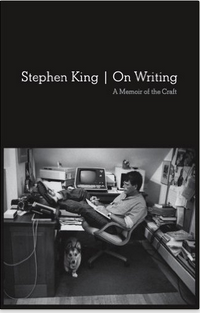
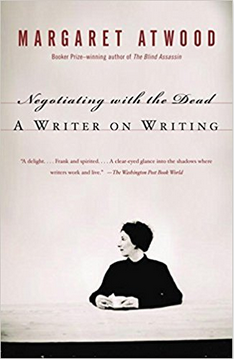
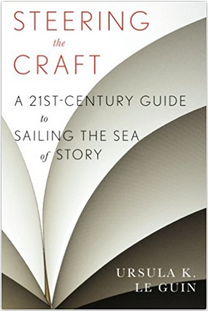
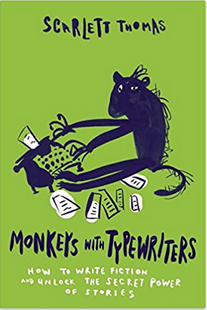
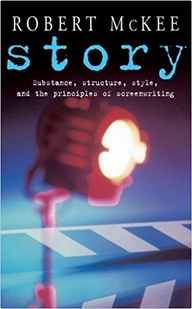

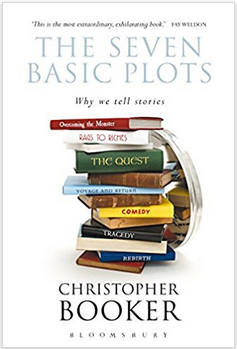
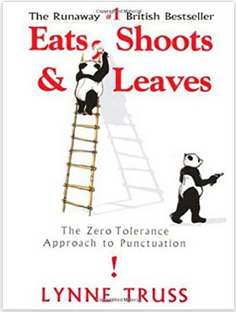
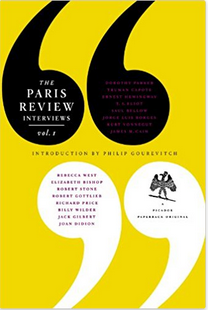
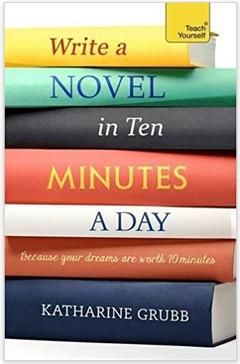
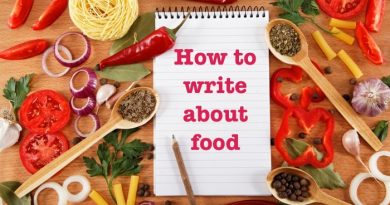
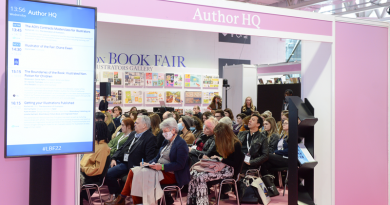
Agree: “Bird by Bird” is very engaging and helpful.
I just read Lisa Cron’s STORY GENIUS, which maps out how to connect plot to emotion. Brilliant!
I love Bird by Bird by Anne Lamott and The Writing Life by Annie Dillard.
I agree – Bird by Bird was clever, funny and inspiring.